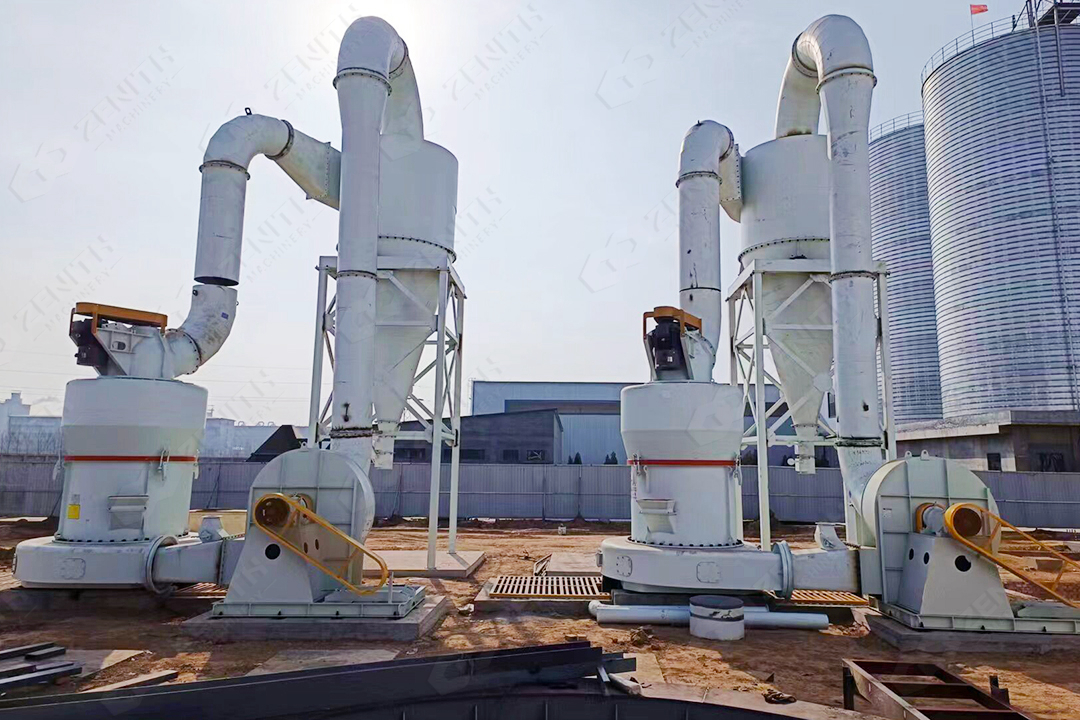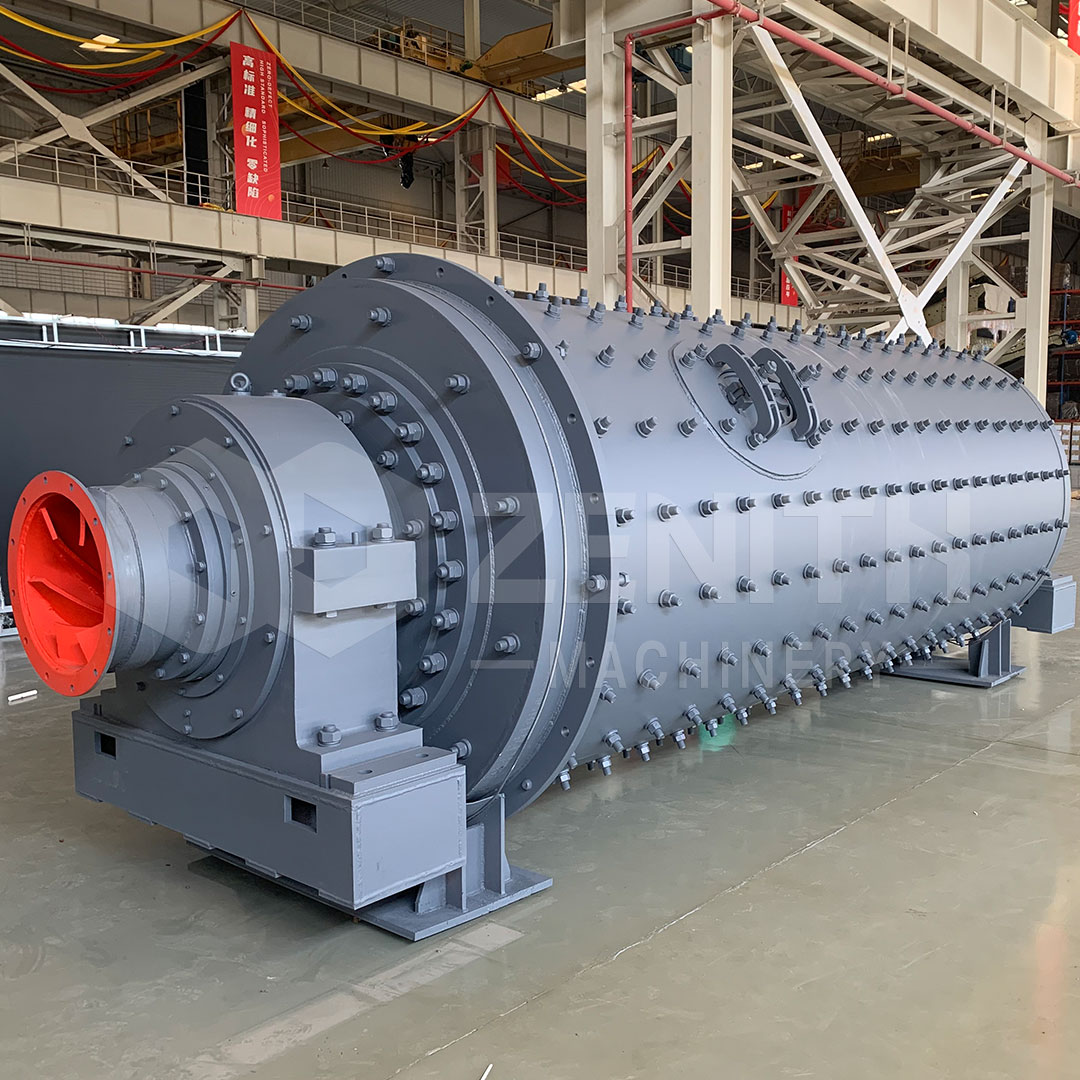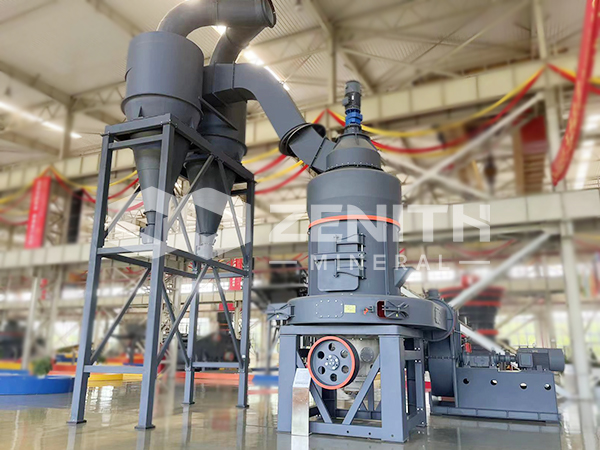Application areas of phosphate rock after grinding
2025-11-10 00:32:27
Phosphate rock, once extracted from the earth, undergoes a crucial transformation through grinding that unlocks its immense industrial potential. The particle size achieved during this comminution process directly determines which industries can effectively utilize this valuable mineral resource. At Zenith Machinery, we've dedicated decades to perfecting grinding technologies that maximize phosphate rock's applicability across diverse sectors.

The journey begins with coarse grinding applications. Our HM Series Hammer Mills efficiently process raw phosphate rock into 0-3mm coarse powder, ideal for direct agricultural application as soil conditioner or for further processing in fertilizer production. This coarse material serves as the foundation for manufacturing phosphatic fertilizers like SSP (Single Super Phosphate) and TSP (Triple Super Phosphate), where the increased surface area facilitates chemical reactions during acidulation processes.
Moving to medium-fine grinding, our MTW and MTM European Trapezium Mills produce powders ranging from 80-400 mesh, perfectly suited for animal feed supplements and industrial applications. The consistent particle size distribution ensures uniform nutrient availability in animal nutrition while meeting the stringent requirements for metallurgical flux in steel production. These mills achieve remarkable energy efficiency—consuming 60% less power than traditional ball mills—while maintaining precise control over final product specifications.
_1762705947271.jpg)
For high-value applications requiring ultrafine powders, our LUM Ultrafine Vertical Grinding Mill and XZM Ultrafine Grinding Mill transform phosphate rock into products spanning 400-3250 mesh. These superfine powders find critical applications in flame-retardant formulations for plastics and textiles, where particle size directly impacts dispersion and performance. The pharmaceutical industry utilizes these ultrafine powders in dental products and medicinal preparations, while specialty ceramics benefit from the controlled particle morphology for enhanced material properties.
The construction industry represents another significant consumer of ground phosphate rock. Our LM Vertical Grinding Mills produce consistent 80-400 mesh powders that serve as essential components in fire-resistant building materials and specialized cements. The mineral's inherent properties, when properly ground, contribute to improved durability and performance characteristics in these applications. The vertical mill design ensures continuous 24-hour operation with minimal supervision, making it ideal for large-scale production facilities.
_1762705947283.jpg)
Water treatment represents an emerging application area where finely ground phosphate rock (typically 200-400 mesh) acts as a cost-effective filtration medium and phosphorus removal agent. The material's natural affinity for heavy metals and contaminants makes it valuable in environmental remediation projects. Our grinding systems' ability to maintain consistent particle size distribution ensures predictable performance in these critical applications.
Beyond these established uses, advanced grinding technologies open doors to innovative applications. The production of phosphoric acid via wet process requires specific particle size distributions to optimize reaction kinetics and yield. Our Ball Mills and Mining Ball Mills provide the robust, continuous grinding capability needed for these large-scale chemical processes, handling capacities up to 300 T/H while maintaining precise control over final product characteristics.

The selection of appropriate grinding equipment depends on multiple factors beyond just final particle size. Material hardness, moisture content, production capacity requirements, and energy efficiency considerations all influence equipment choice. Zenith's diverse product range—from our rugged LM-Y Vertical Pre-grinding Roller Mills for coarse preparation to our sophisticated Raymond Mills for fine powder production—ensures that every phosphate processor can find the optimal solution for their specific requirements.
Modern grinding systems incorporate advanced features that extend beyond simple particle size reduction. Our equipment designs emphasize environmental responsibility through sealed operation under negative pressure, pulse dust collection systems, and significantly reduced noise levels compared to traditional milling approaches. These features not only protect workers and the environment but also maximize product recovery and operational efficiency.
_1762705947290.jpg)
As global demand for phosphate-based products continues to grow across agriculture, industry, and technology sectors, the importance of efficient, precise grinding technology becomes increasingly critical. Zenith's commitment to research and development ensures our grinding solutions remain at the forefront of this evolving industry, helping processors maximize value from every ton of phosphate rock while minimizing environmental impact and operational costs.
Frequently Asked Questions
What is the optimal fineness for phosphate rock in fertilizer production?
For most fertilizer applications, grinding to 80-200 mesh provides the ideal balance between chemical reactivity and processing efficiency. Our MTM and MTW European Trapezium Mills excel in this range, offering high capacity with minimal energy consumption.
Can Zenith equipment handle the abrasive nature of phosphate rock?
Absolutely. Our grinding mills feature wear-resistant materials in critical components, with optional ceramic or special alloy linings available for extended service life in abrasive applications.
What capacity range do your phosphate grinding systems cover?
We offer solutions from 0.5 T/H laboratory scale to 340 T/H industrial production systems, ensuring appropriate technology for operations of any size.
How does grinding fineness affect phosphate rock solubility?
Finer grinding significantly increases surface area, dramatically improving solubility in both agricultural and industrial applications. Our ultrafine mills can achieve particles below 5 microns for maximum dissolution rates.
Do you provide custom solutions for specific phosphate applications?
Yes, we engineer custom configurations based on your raw material characteristics, production targets, and final product specifications, leveraging our extensive experience across global phosphate operations.
What dust control measures are incorporated in your grinding systems?
All our systems operate under negative pressure with integrated pulse jet dust collectors, ensuring workplace safety and environmental compliance while maximizing product recovery.
How does your energy consumption compare to traditional ball mills?
Our advanced grinding technologies typically reduce energy consumption by 30-60% compared to conventional ball mills, with vertical mills and trapezium mills showing the most significant savings.









